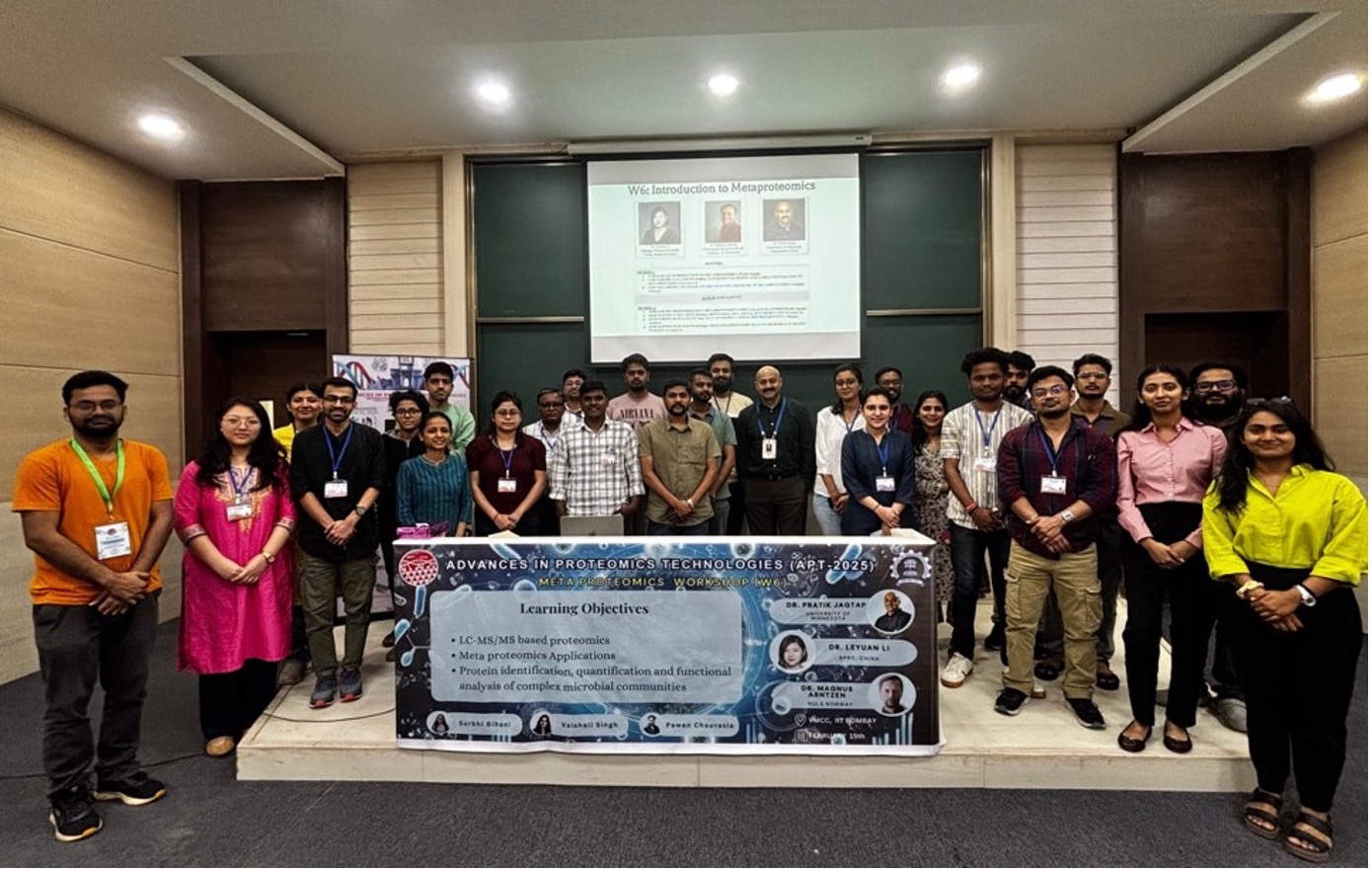
Leyuan Li (Beijing Proteome Research Center, China), Magnus Artnzen (Norges miljø- og biovitenskapelige universitet, Norway) and Pratik Jagtap (University of Minnesota, USA) conducted a day-long workshop at the Advances in Proteomics Technologies (APT-2025) held at IIT Bombay (India).
The session included an introduction to metaproteomics (Pratik Jagtap), followed by presentation on Experimental Design and Sample Preparation (Leyuan Li). Magnus Arntzen presented on data acquisition strategies using mass spectrometry for metaproteomics. After lunch, the attendees went through a hands-on bioinformatics session on Galaxy-P platform for metaproteomics, followed by introduction to the MetaLab platform by Leyuan Li. Magnus Arntzen later presented on data interpretation and troubleshooting for metaproteomics and Leyuan Li concluded the workshop by presenting on her insights on microbial ecology analysis using metaproteomics data. The workshop was attended by 24 researchers across India and involved a good interaction with the metaproteomics experts. The workshop attendees were made aware of the Metaproteomics Initiative so that they can join in for their project needs (https://z.umn.edu/mp-gtn-2025). The workshop will be followed up with a data analysis project using open-source software tools. The workshop was supported by Surbhi Bihani, Vaishali Singh and Pawan Chaurasia (students at the IIT Bombay). The presenters and students would like to thank Sanjeeva Srivastava and his team for giving us an opportunity to conduct this workshop. Pratik Jagtap also presented a talk on oral leukoplakia metaproteomics at the APT-2025 conference. He also presented talks and interacted with staff and students at the Institute of Life Sciences (BRIC-ILS) at Bhubaneshwar and at the National Centre for Cell Sciences (BRIC-NCCS) at Pune. During these lectures, the staff and students were introduced to metaproteomics and activities by the Metaproteomics Initiative and were also encouraged to join the Metaproteomics Initiative.